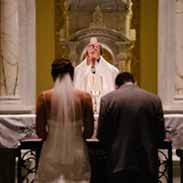7.4 Economic Recovery Sparks Change – Flashcards
Unlock all answers in this set
Unlock answersquestion
Why did agricultural production improve?
answer
-peasants were using iron plows->improvement over wooden plows which were not designed for heavy northern soils -new kind of harness allowed peasants to use horses rather than oxen to pull plows->faster than horses->larger fields and more crops -adopted a new way of rotating crops:three field system -> one for grain, 2nd for legumes, and the third unplanted->left only one third unplanted -allowed farmers to produce more food->population increase!
question
charter
answer
-written document that set out rights and privileges for the town -merchants paid the lord or king a large sum of money, a yearly fee, or both -most had a clause, that declared that anyone who lived in the town for a year and one day was free
question
How and why did medieval towns and cities grow?
answer
-trade routes expanded and people began to go Europe to demand goods -trade fairs closed in autumn when weather made roads impassable->merchants waited out winters in a castle or town->settlements attracted artisans who made good that merchants could sell->became first medial cites -most popular ones were Italy and Flandsers-both centers of wool trade and had textile interests
question
capital
answer
-money for investment, that stimulated the growth of banking houses -merchants extended credit to one another->arranged to delay payment for goods at a certain time
question
partnership
answer
-groups of merchants joined into these -they pooled their funds to finance a large scale venture that would have been too costly for any individual -made capital more easily available -reduced the risk for any one partner because no one had to invest all his or her capital in the company
question
tenant farmers
answer
-peasants who paid rent for their land or hired farm laborers
question
middle class
answer
-ranked between nobles and peasants -despised by by the nobles and the clergy -nobles thought towns were a disruptive influence beyond their control -clergy thought that profits merchants and bankers made from lending money were immoral -gained economic and political power
question
guilds
answer
-associations formed by merchants and artisans -dominated town life->passed laws&levied taxes -each of these represented workers in one occupation, such as weavers, goldsmiths,&bakers -members cooperated their own economic interests -made rules to protect the quality of the goods, regulated hours of labors, and set prices
question
apprentice
answer
-trainee to a guild master -spent years learning the trade
question
journeymen
answer
-salaried workers, often accused masters of keeping their wages low so that they could not save enough to open a competing shop
question
Describe a woman's role in the guilds.
answer
-women worked in dozens of crafts -engaged in the same trade as her father or husband -became apprentices in ribbonmaking and papermaking -dominated some trades and even had their own guilds
question
Why were guilds important to town life?
answer
-dominated town life by passing laws and levying taxes(merchants?) -decided whether to spend funds to pave streets with cobblestones or make other town improvements -provided social services by operating schools and hospitals, looking after the needs of the workers, and providing support
question
What were medieval cities like?
answer
-surrounded by high protective walls -overcrowded, narrow streets with tall houses -fire was a constant threat - had a church with a tall steeple -no garbage or sewer system->flung stuff in streets>some passed laws to prevent this -overall towns were filthy, smelly, noisy, and crowded-->perfect for disease!



